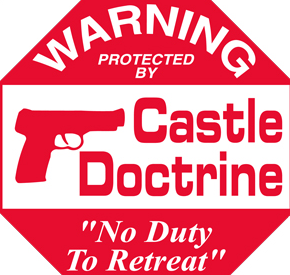On February 8, 2013, a Charleston County jury was unable to reach a verdict in a double-murder trial. It was the second trial for the accused for killing a North Charleston couple back in 2010. The accused testified and stated the two decedents came at him with a sword and a box cutter and argued self-defense. All three had been living in the same apartment.
Self-defense
Self-defense is no longer an affirmative defense in South Carolina. The defendant need only produce evidence that causes a jury to have a reasonable doubt about his guilt. State v. Bellamy, 293 S.C. 103, 359 S.E.2d 63 (1987). The State must then disprove self-defense beyond a reasonable doubt. State v. Wiggins, 330 S.C. 538, 500 S.E.2d 489 (1998); State v. Fuller, 297 S.C. 440, 377 S.E.2d 328 (1989).
Requirements for self-defense:
- The defendant is without fault in bringing on the difficulty;
- The defendant was in actual imminent danger of losing his life or sustaining serious bodily injury, or he must have actually believed he was in imminent danger of losing his life or sustaining serious bodily injury;
- If his defense is based on his belief of imminent danger, the defendant must show that a reasonably prudent person of ordinary firmness and courage would have entertained the same belief and would have struck the fatal blow in order to save himself from serious bodily harm or the loss of his life; and
- The defendant had no other probable means of avoiding the danger.
State v. Light, 378 S.C. 641, 664 S.E.2d 465 (2008); State v. Rye, 375 S.C. 119, 651 S.E.2d 321 (2007); State v. Long, 325 S.C. 59, 480 S.E.2d 62 (1997).
Self-defense is not the Castle Doctrine
In South Carolina, the common law doctrine known as the “Castle doctrine” was codified by the General Assembly in 2006. Essentially, your home is your castle and you have the right to use deadly force to defend it in certain circumstances. The law is now known as the “Protection of Persons and Property Act.” The new law extended the doctrine beyond the home to include an occupied vehicle (think car-jacking) and a person’s place of business. It provides a law-abiding citizen immunity from prosecution or civil actions when acting in self-defense. But it is separate and distinct from a self-defense claim.
Arguments for and against
Proponents of the law argue that its necessary to protect innocent victims from facing murder prosecutions when lawfully defending themselves when confronted by home invasions, carjackings, or armed robbers.
Opponents counter that it will encourage vigilantism and a shoot first ask questions later mentality that places not only criminals but innocent bystanders at risk.
There have been numerous cases that have reached the media spotlight, here, here, here, one even leading to public comments from President Barack Obama (Trayvon Martin shooting in Florida). In the last several years in the lowcountry area of South Carolina there have been several self-defense claims resulting from home intruder incidents where the home owner killed the intruder. A large number of them resulted in no one being charged for crime at all.
To prosecute or not?
I have personally dealt with murder cases where the self-defense argument was raised. They are very difficult to deal with as a prosecutor as the most important person to your case (the decedent) is unable to give their version of the facts. What you’re left with is the physical evidence (if any) and the statements from other witnesses or the accused themselves (if any). So it’s not surprising that when a case does make it to trial a jury verdict often ends in a hung jury or an acquittal.
The solution
I’m not sure there is one better than the jury trial process, as often is stated, its not a perfect system but its the best one we have and for the most part I have seen juries come out with well reasoned verdicts. These are tough cases to prosecute and just as difficult to defend when you factor in your client is facing a minimum of 30 years up to life in prison under current sentencing in SC. Often times our system of justice provides the only opportunity to argue the facts and present the evidence to 12 strangers from our community and sometimes that is the best and only course of action to take.

